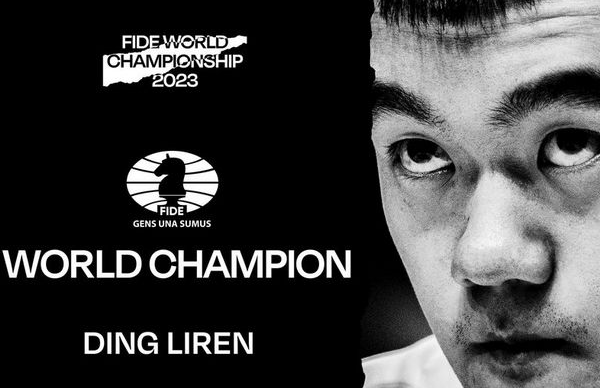
Photo: FIDE.
Havana, May 1 (RHC)-- China's Ding Liren became the 17th world champion in the history of chess, after an impressive close in the match for the crown held in Astana, capital of Kazakhstan.
With only three classical games left for the closing of the duel against the Russian Ian Nepomniachtchi, the first Chinese monarch achieved an epic comeback that apparently ended up strengthening him psychologically in the bid to take over a crown that since 2013 belonged to the Norwegian Magnus Carlsen.
A seven-point draw was the result of the 14 scheduled classical duels. The roulette of the rapid tiebreakers was set in motion this Sunday and parity prevailed again in the first three 25-minute games.
Nepo was counting on the advantage of the white pieces and chose the Ruy Lopez Opening, perhaps thinking to "move" on well known terrain, but he miscalculated.
Liren pressed with less than two minutes on the clock and went in search of complications in an unclear position. There was a bit of everything, passed pawns on the queenside, open lines on the kings to provoke ambushes?
The battle was defined at the height of move 68 to decree the 2.5-1.5 in favor of the Asian, who since 2015 has the highest Elo accumulated recorded for a player from his country.
So far his best score in the orb ranking was held between October 2022 and January 2023 with 2,811 points.
Liren has been three times champion of his country and winner of prizes in orb age-group tournaments. In addition, he is the most consistent player in recent times, which is ratified after his performance.
The first world chess champion was the Austrian Wilhelm Steinitz in 1886. Since then, great stars of the Science Game, most of them considered geniuses, have succeeded each other on the throne.
Among them, Cuba has the honor of having José Raúl Capablanca, third monarch of the list between 1921 and 1927. The American Robert Fischer (1972-1975), the Indian Viswanathan Anand (2007-2013) and the Norwegian Carlsen (2013-2023) also dared to challenge the Soviet-Russian domination in their times.
Now that it is all over in Astana many wonder whether Liren or Nepomniachtchi could have beaten Carlsen, an answer in which the subjective will always mediate.
Any certainty remained in the air since the Nordic considered "too boring" to continue fighting for the world crown. Perhaps the opportunity to fight against the first Chinese monarch or the interest of reconquering a kingdom he would consider his own will make him change his mind.

